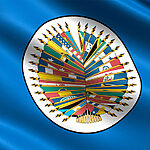131st Session of the ILOAT: A snapshot into the mind of the Tribunal
The Administrative Tribunal of the International Labour Organization (ILOAT) deals with cases commenced by international employees against the international organisations they are employed with and that have recognized its jurisdiction. Nearly 60,000 international civil servants from 57 different international organisations rely on the judgements of this Tribunal in case of a labour dispute. The volume […]















